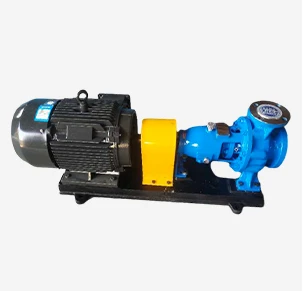TEL:
+86 13120555503
Greek
- Afrikaans
- Albanian
- Amharic
- Arabic
- Armenian
- Azerbaijani
- Basque
- Belarusian
- Bengali
- Bosnian
- Bulgarian
- Catalan
- Cebuano
- Corsican
- Croatian
- Czech
- Danish
- Dutch
- English
- Esperanto
- Estonian
- Finnish
- French
- Frisian
- Galician
- Georgian
- German
- Greek
- Gujarati
- Haitian Creole
- hausa
- hawaiian
- Hebrew
- Hindi
- Miao
- Hungarian
- Icelandic
- igbo
- Indonesian
- irish
- Italian
- Japanese
- Javanese
- Kannada
- kazakh
- Khmer
- Rwandese
- Korean
- Kurdish
- Kyrgyz
- Lao
- Latin
- Latvian
- Lithuanian
- Luxembourgish
- Macedonian
- Malgashi
- Malay
- Malayalam
- Maltese
- Maori
- Marathi
- Mongolian
- Myanmar
- Nepali
- Norwegian
- Norwegian
- Occitan
- Pashto
- Persian
- Polish
- Portuguese
- Punjabi
- Romanian
- Russian
- Samoan
- Scottish Gaelic
- Serbian
- Sesotho
- Shona
- Sindhi
- Sinhala
- Slovak
- Slovenian
- Somali
- Spanish
- Sundanese
- Swahili
- Swedish
- Tagalog
- Tajik
- Tamil
- Tatar
- Telugu
- Thai
- Turkish
- Turkmen
- Ukrainian
- Urdu
- Uighur
- Uzbek
- Vietnamese
- Welsh
- Bantu
- Yiddish
- Yoruba
- Zulu
Telephone: +86 13120555503
Email: frank@cypump.com
Φεβ . 18, 2025 08:32 Back to list
advantage chemical pumps
Understanding the vital role of pumps in water treatment processes is crucial for selecting the appropriate technology and ensuring efficient operation. Pumps are the heart of water treatment systems, critical in managing the flow and pressure necessary to treat water effectively. This article delves into the complexities and functionalities of different pump technologies, highlighting their application in water treatment while drawing from real-world experiences, expertise, authoritative insights, and credibility.
The authority on water treatment pumps often extends to the manufacturers and organizations setting industry standards. Bodies such as the Hydraulic Institute and the American Water Works Association (AWWA) provide guidelines and certifications ensuring pumps meet stringent efficiency and safety standards. Purchasing pumps that conform to these benchmarks underscores their quality and reliability, offering consumers peace of mind. Water treatment professionals often share testimonies about the tangible benefits of selecting the right pumps. Facilities that invest in high-quality, well-suited pumps consistently report reduced energy consumption, decreased operational costs, and improved water quality. They stress that while the initial investment may be higher, the return in longevity and efficiency far outweighs the upfront expenditure. Maintaining the credibility of a water treatment system relies on the regular maintenance and evaluation of pump performance. Implementing a rigorous maintenance schedule, which includes regular inspections, cleaning, and performance testing, is vital. By adopting a proactive approach, facilities can ensure their pumps continue to operate efficiently, protecting both the environment and public health. In conclusion, pumps in water treatment are more than just mechanical devices; they are integral components that require careful selection, regular maintenance, and the adoption of cutting-edge technologies to enhance operational efficiency. Professional insights, backed by authoritative guidelines and real-world applications, underscore the importance of investing time and resources into this critical aspect of water management. Understanding pumps' operational intricacies and aligning them with the specific demands of a water treatment facility ensures sustainable and optimal performance, safeguarding one of our most precious resources—clean water.


The authority on water treatment pumps often extends to the manufacturers and organizations setting industry standards. Bodies such as the Hydraulic Institute and the American Water Works Association (AWWA) provide guidelines and certifications ensuring pumps meet stringent efficiency and safety standards. Purchasing pumps that conform to these benchmarks underscores their quality and reliability, offering consumers peace of mind. Water treatment professionals often share testimonies about the tangible benefits of selecting the right pumps. Facilities that invest in high-quality, well-suited pumps consistently report reduced energy consumption, decreased operational costs, and improved water quality. They stress that while the initial investment may be higher, the return in longevity and efficiency far outweighs the upfront expenditure. Maintaining the credibility of a water treatment system relies on the regular maintenance and evaluation of pump performance. Implementing a rigorous maintenance schedule, which includes regular inspections, cleaning, and performance testing, is vital. By adopting a proactive approach, facilities can ensure their pumps continue to operate efficiently, protecting both the environment and public health. In conclusion, pumps in water treatment are more than just mechanical devices; they are integral components that require careful selection, regular maintenance, and the adoption of cutting-edge technologies to enhance operational efficiency. Professional insights, backed by authoritative guidelines and real-world applications, underscore the importance of investing time and resources into this critical aspect of water management. Understanding pumps' operational intricacies and aligning them with the specific demands of a water treatment facility ensures sustainable and optimal performance, safeguarding one of our most precious resources—clean water.
Share
Next:
Latest news
-
Reliable Non-Clog Sewage Pumps with GPT-4-Turbo Tech
NewsAug.04,2025
-
High-Performance Air Pumps for Sand & Gravel | Efficient Transport
NewsAug.03,2025
-
ISG Series Vertical Pipeline Pump - Chi Yuan Pumps Co., LTD.|Energy Efficiency, Corrosion Resistance
NewsAug.03,2025
-
ISG Series Pipeline Pump - Chi Yuan Pumps | Energy Efficiency&Compact Design
NewsAug.03,2025
-
ISG Series Vertical Pipeline Pump - Chi Yuan Pumps Co., LTD.|High Efficiency, Low Noise, Durable
NewsAug.02,2025
-
ISG Series Vertical Pipeline Pump - Chi Yuan Pumps | High Efficiency, Low Noise
NewsAug.02,2025










